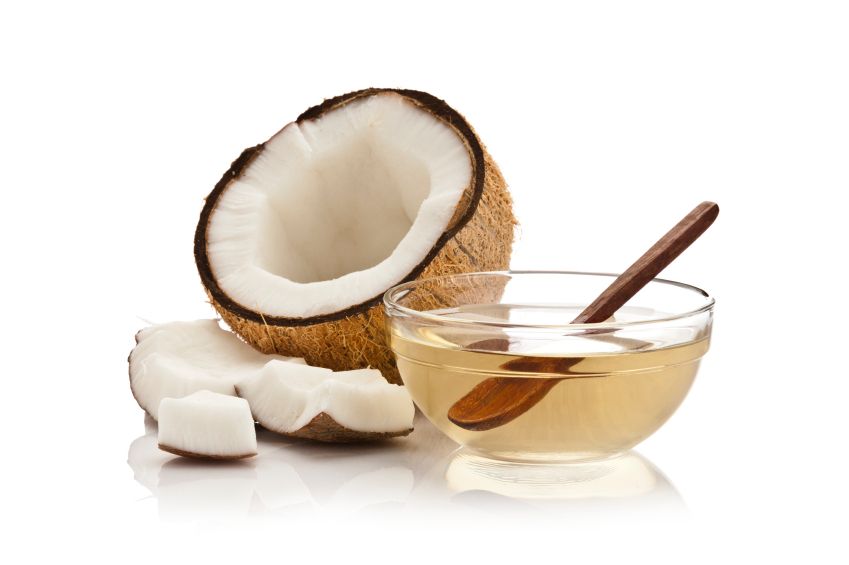What if we told you that you could burn fat around the clock?
If we said that every time you nipped to the shop, ran for the Tube, or just sat at your desk kicking your heels you were burning fat?
What if we said you could have stable blood sugar, boundless energy, and fewer wild cravings all day?
You'd probably tell us we were bonkers. But we're telling you all of this can be yours, and more my friend.
It's all down to the ketogenic diet. "Going keto" flies in the face of conventional wisdom about how we should all eat low fat foods. It's basically a low carb, high fat diet - and while it's not for everyone, it can really help shed some serious body fat and reveal those abs.

How does it work?
When you're on a regular high carb diet it's pretty hard to burn off your body's fat stores, unless you're training like a demon. You'll pretty much just be burning off the carbs you consume every meal, or even worse, store them as more fat.
But the ketogenic diet is extremely low carb - we're talking like 20g to 50g per day, and ideally that should come from high fibre, low glycemic load green vegetables.
So this forces your body to switch where it gets its energy from; where it was getting energy from glucose, now it's forced to start burning your stored body fat to keep you going.
This state is what's known as 'ketosis' - it's an evolutionary response that allows you to function physically and mentally when your carbohydrate intake is consistently low.
Without wanting to get too sciencey, when your carb intake drops your liver glycogen drops, so your body turns to burning fatty acids. This creates ketones which are a source of fuel your body can use, just like glucose.

What do you eat?
Fat - shitloads of fat! Stuff your face full of it - ignore all that government tripe about fat being bad for you. Tuck in, lad.
Although before you go completely mad, we must stick a caveat in here. We're not talking about the nasty trans fats fats you'll find in junk food.
You should get getting your fats from good sources like olives, coconut oil, nuts, eggs avocados and oily fish, like mackerel and salmon, which are full of brilliant Omega 3 fatty-acids. Even saturated fats like grass-fed butter, lard and ghee are on the menu.
In fact anywhere between 50 to 70 per cent of your total calories should be coming from these health-promoting fat sources on the keto diet.
Keep your protein between 20 to 30 per cent of your calorie intake, although this might be higher if you're hitting the weights hard.
Just a tiny fraction of what you eat should now come from carbohydrates - lower than 50g is optimal. Non-starchy vegetables like spinach, kale, asparagus and lettuce are ideal along with some Brussel sprouts, broccoli and other cruciferous veg.
Obviously avoid all processed foods, grains, milk, factory farmed meat, and any refined oils and fats like margarine.

What are the benefits?
You get to eat loads of delicious fat for starters. But the good times don't end there. Oh no.
The ketogenic diet soon switches your body over to burning fat as a primary source of fuel. So you're burning all that nasty fat stored in your adipose tissue around the clock - especially if you add intermittent fasting in there.
Eating a diet high in good, essential fats is a great appetite suppressant too. This is because you're filling up on nutrient-dense foods and calorie-packed fats instead of carbs, so you're ending the sugar spike and crash cycle you've been putting your body through all these years.
Getting energy from fatty acids instead of glucose means your blood sugar will be stable which has the added benefit of killing your sugar cravings dead. Hunger will never be the same.
Because your fat intake is high and your insulin levels are low (the fat storage hormone) your body will actually be storing less fat and burning more. Other good hormones like human growth hormone are released when insulin is low.
Your body actually prefers using ketones for fuel over glucose. What this means is it has a sparing effect on proteins you consume, because there's so much fat for energy it doesn't need to oxidise protein to generate glucose through gluconeogenesis. Great if you're trying to build muscle.
Your brain actually functions more effectively off ketones, which are a cleaner and more efficient energy source than glucose. In fact ketones produced from omega-3 fatty acids may reduce cognitive deterioration in old age.
There's even research to suggest that it could help starve cancer cells of glucose, according to the
Life Hackers Guide.
Shall we go on?

What are the drawbacks?
It was never going to be all gravy with the ketogenic diet. There are obviously drawbacks to the diet (apart from the 'eating fat until you burst' part).
There is no conclusive evidence of the long-term effects ketosis has on the body, good or bad.
But in the short term, when you're body is switching over to this different metabolic state, it can take a toll on you.
You might feel tired, dehydrated and have brain fog as your the lack of carbohydrate and the emptying of your muscle glycogen stores hits home.

But once you get into the ketosis state, you should have more energy than ever before.
Too many saturated fats can also increase your blood lipid profile, so some people might see an increase in cholesterol, while others' might drop.
When you drastically cut your carbs you can also slash some important micronutrients from your diet like thiamin, folate, calcium, iron, potassium, and magnesium, according to
Bodybuilding.com
But you can get around this by supplementing with a good multivitamin product.







 But once you get into the ketosis state, you should have more energy than ever before.
Too many saturated fats can also increase your blood lipid profile, so some people might see an increase in cholesterol, while others' might drop.
When you drastically cut your carbs you can also slash some important micronutrients from your diet like thiamin, folate, calcium, iron, potassium, and magnesium, according to Bodybuilding.com
But you can get around this by supplementing with a good multivitamin product.
But once you get into the ketosis state, you should have more energy than ever before.
Too many saturated fats can also increase your blood lipid profile, so some people might see an increase in cholesterol, while others' might drop.
When you drastically cut your carbs you can also slash some important micronutrients from your diet like thiamin, folate, calcium, iron, potassium, and magnesium, according to Bodybuilding.com
But you can get around this by supplementing with a good multivitamin product.